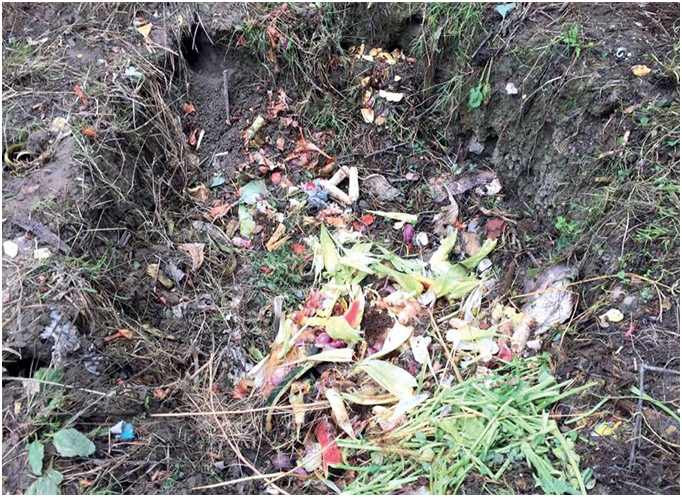Dr Jyoti Sharma
India is battling plastic waste pollution and a garbage crisis. About 70 per cent of the waste even in our UT that goes into landfills is actually organic waste that can be turned into compost. Left unsorted, organic waste is prevented from entering the natural cycle of decomposition, and when mixed with other waste, adding to mountains of garbage, gives off an unbearable stench, as well as leachate – toxic fluids that leach into and contaminate the soil and water.
With landfills teeming – especially worsened by the pandemic in the past two years – surrounding villages pay the price as they face social and health problems from the high levels of methane gas being emitted. Solid Waste Management is one of the biggest global issues facing humankind as a result of rapid urbanization and an ever-increasing global population. The issue puts pressure on the limited resources available such as land, thus making it mandatory to seek new alternative methods for disposing of waste. Jammu and Kashmir is no exception. On an average, J&K generates 3,134 tons of solid waste a day that constitutes organic fraction 40-45%, 20-30% inert fraction, rest plastic rags and other components. The two landfills in Bhagwati Nagar in Jammu division and Achan in Kashmir division are overflowing as both the landfills have already exceeded their capacity. Due to the fertile nature of the land, mountainous terrain, and rapid urbanization, it is difficult to find more land in J&K for waste disposal.
Sharing Social Responsibility: The solution of the problem/ crisis lies in it itself. I would like to quote here the example of a family who lives in Nagrota area of Jammu District. The daily garbage generated by Sushila Devi a house wife and head of the family and his family of four can fit inside two regular disposable pits one for organic waste and other one for in-organic waste which is treated properly by his son Madan Gopal, a Govt. servant, on regular intervals of time and is converted into manure for their kitchen garden. This has been possible because the family segregates its garbage and composts the organic kitchen waste in a pit constructed in their kitchen garden for this purpose. Before they introduced this simple tweak in their daily routine few years back, they generated on an average three kilogram’s of mixed waste every day.
A similar routine is followed by Mujtaba Bashir, and his family in Budgam district, who believes that in-house composting is the only sustainable solution to the mounting garbage problem in the Valley. Like them, many more families spread across different districts that put their faith in in-house composting which is the need of an hour to rein in the monster of pollution.
“Our goal is to build a sustainable economy. For achieving this goal, we must change our habits and routines. An important method of waste management is the prevention of waste material being generated, also known as waste reduction. Waste Minimization is reducing the quantity of hazardous wastes achieved through a thorough application of innovative or alternative procedures. Methods of avoidance include reuse of second-hand products, repairing broken items instead of buying new ones, designing products to be refillable or reusable (such as cotton instead of plastic shopping bags), encouraging consumers to avoid using plastic disposable products (such as disposable plates, glasses), removing any food/liquid remains from cans and packaging, and designing products that use less material to achieve the same purpose (for example, light-weighting of beverage cans).
If we have got the gumption, we can not only turn the waste into wealth but simultaneously, rid ourselves from one of the biggest threats the humanity is facing due to rapid urbanization and population explosion.
(The author is Dy. Director, Planning Dept, J&K)
Trending Now
E-Paper


